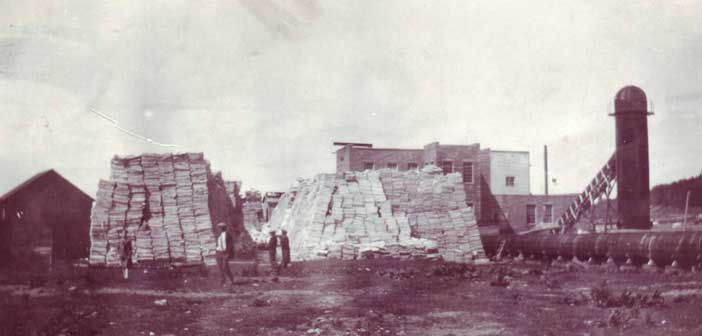CANADA—Last Friday’s news that Assembly of First Nations (AFN) National Chief Shawn A-in-chut Atleo would be resigning from his post effective immediately came with mixed reviews, with Anishinabek Nation Grand Council Chief Patrick Madahbee saying the announcement came after a series of events that ultimately ended with the prime minister “hanging him out to dry.”
Chief Madahbee said Prime Minister Stephen Harper began his puppetry of the national chief when he first announced that he, along with Aboriginal Affairs Minister Bernard Valcourt, would create a joint panel with the AFN, but the government then appointed everyone on the panel with no say from the AFN or the chiefs it represents.
The chiefs also learned that Mr. Atleo met with the prime minister without consultation “and now the First Nations Education Act,” calling the recently tabled second draft “an even worse piece of legislation.”
“They thought they’d quiet it down by throwing a bit of money out there, but it came back even worse,” he reiterated. ($1.25 billion for First Nations education over three years has been committed by Ottawa, but is not to be available until 2016, the year following the next federal election.)
Last week, Ontario regional chief Stan Beardy called for an emergency meeting of the AFN chiefs to be held on May 14 in Ottawa regarding the First Nations Education Act, invoking Article 14 of the AFN charter that gives members of the executive the ability to request a special session. Chief Madahbee said there was discontent among the ranks, with some chiefs, and community members, starting to speak of National Chief Atleo’s impeachment.
While Mr. Atleo was elected for a second term, Chief Madahbee said many of the Ontario chiefs did not know the other candidates and the old adage “better the devil you know” applied.
[pullquote]“Don’t get me wrong, I think he was a very good leader, but he started listening to his advisers and lawyers, some of whom were non-Native, instead of the chiefs and most importantly the people,” Chief Madahbee said. “I’ve known Shawn long enough that I believe he had the right intentions, but Harper left him out to dry.”[/pullquote]
“Don’t get me wrong, I think he was a very good leader, but he started listening to his advisers and lawyers, some of whom were non-Native, instead of the chiefs and most importantly the people,” Chief Madahbee said. “I’ve known Shawn long enough that I believe he had the right intentions, but Harper left him out to dry.”
M’Chigeeng Chief Joseph Hare expressed his regrets on the resignation of National Chief Atleo with The Expositor.
“Shame on us for compromising the national chief,” said Chief Hare. “The chiefs of Canada demanded changes to the original version of the Act, and through Atleo and the government these demands were accommodated. But now the chiefs, how many of them we don’t know, have now decided the accommodations were not enough, and led by leaders of the regional organizations, severely criticized the national chief for supporting their initial demands. National Chief Atleo had no choice but to resign.”
“There is never enough resources to go around, but as we argue for support guaranteed in treaties, we gain some ground,” Chief Hare continued. “We should take what we gain because there will be some improvement and then we will argue another day. The struggle will never be over, but at the same time we have to provide education and skills training to our band members with what we have.”
“We have to proceed in this fashion because rejection of the Act will leave us where we are today; the new Act moves us forward and moving forward is what I intend to do,” the M’Chigeeng chief continued. “M’Chigeeng will continue to improve its education system and will do so by relying upon the leadership of the chief and council, the leaders of education in his community. We are working to close the gap in education funding and the achievements of our students. The education system we have now is in the top four in Ontario and soon we will be number one.”
“If we don’t get there, we are not going to blame the national chief; we will blame ourselves,” he added.
The AFN met Monday to discuss an interim leader or even elections in July.
“There is a positive in that now is a good time to take a good look at the AFN structure and how it’s running, because it’s not operating the way it is supposed to,” Chief Madahbee said, explaining that the AFN should be there to serve member nations, and not Indian Act reserves.
“I’ve been in the business for 40 years and it’s not the first time we’ve had challenges,” the grand council chief added. “The real true power is in the communities and not the AFN.”





